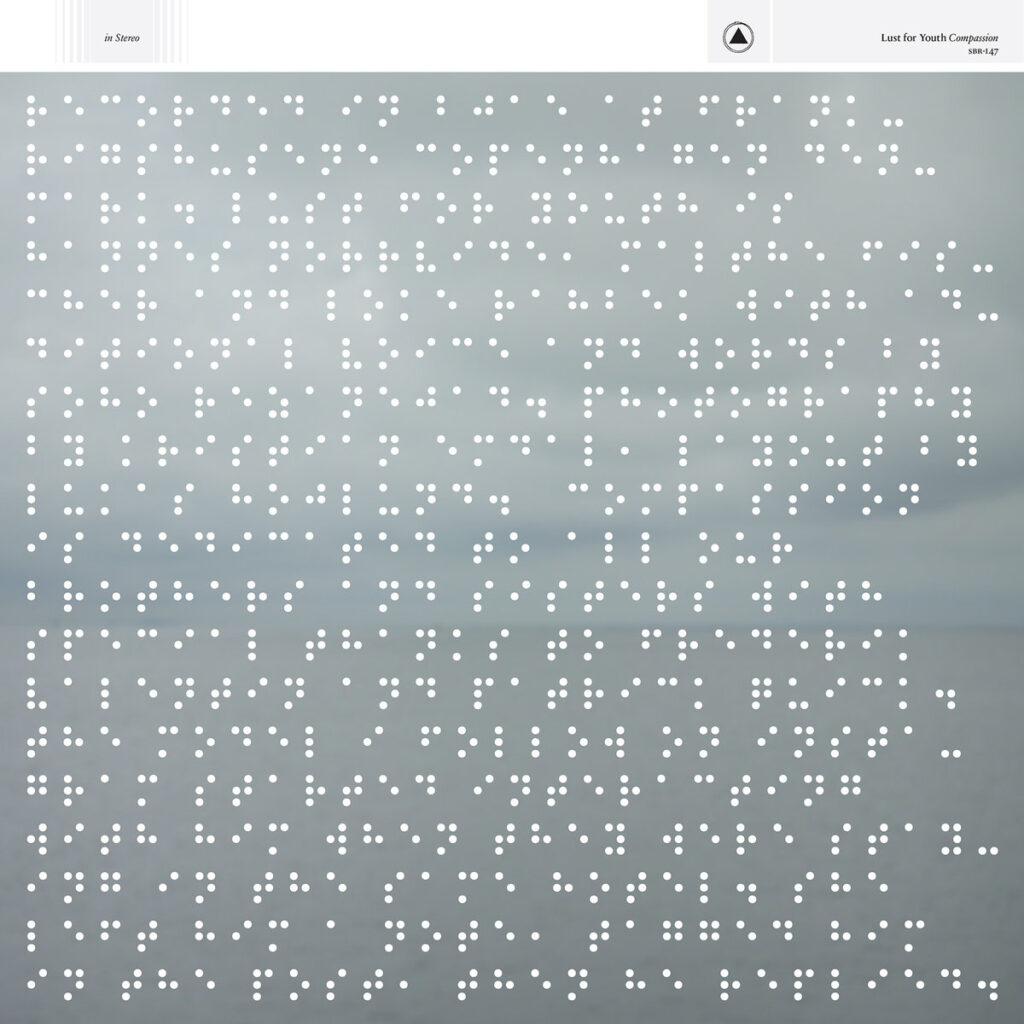Over the past five or six years we have seen a proliferation of stylish, sonically innovative bands from Denmark building adoring fan bases over here. Iceage, First Hate, Communions, and Damien Dubrovnik (Christian Stadsgaard and Lust For Youth’s Loke Rahbek) have all found widespread appeal outside of Denmark. With Lust For Youth’s latest album, the trio from Copenhagen have firmly positioned themselves at the top of the pile.
Their sixth album Compassion is something of a departure from their previous work. In many ways the album signals the apotheosis of their transition from an industrial-tinged synth band to the polished synth-pop group they are now. When Rahbek, and later, Malthe Fischer joined the band, they could have retreated further into harsh industrial sounds, but instead they have moved towards a more upbeat and, at times, more melancholic, emotionally sincere mode. The sound of Compassion and their recent work holds meticulous, clean production as a more important attribute of their music than the low-fi sound of both their previous releases and Rahbek’s side project Damien Dubrovnik. Draw a line from their first album Solar Flare released on Avant! in 2011 to now and the progression is remarkable.
Compassion harks back to the 90s without ever feeling trite and overwrought. The press release calls it ‘anthemic’, and it’s true: the melodies are joyously simple and memorable, and nearly every song on the album is infectiously catchy. Couple this with Hannes Norrvide’s distant wail – a mélange of Bernard Sumner, Neil Tennant and Dave Gehan – and you have something very special.
‘Better Looking Brother’ is one of the stand out tracks on the album. Driving, dance-inducing, it is nostalgic for a 90s club scene. ‘Limerance’ and ‘Stardom’ follow in a similar vein; they are airy and euphoric and yet are not without their melancholic touches. This gives an added depth to the album; it would be very easy to pass Compassion off as a neat little collection of surface-level pop tunes. But there is something more going on here, something more emotional as the album oscillates between the joyful and the doleful.
This is evidenced clearly in ‘Display’ which is most certainly Compassion’s crowning glory. Emerging out against the swinging Brit-pop-esque ballad which forms the spine of the song are Norrvide’s vocals which are achingly sincere. When he bemoans the fact that "There’s no such thing as truth anyway", you believe him. The use of guitars in place of the airy, poppy synths used throughout much of the album also makes the song a departure from the established tone, giving ‘Display’ a more despondent, and emotionally earnest feel.
With an album of so many highlights, it is inevitable that some tracks feel a little too cold, a little too distant. ‘Tokyo’, for instance, lacks the punch which is in abundance throughout the rest of the album. However, rather than detracting from the quality of the album, it instead shows what a precedent is set early on and how hard that level of quality is to keep up.
But in a way this doesn’t matter; Compassion is such an easy listen. The melodies are so cheerful, so simple and memorable, they require absolutely no effort to enjoy. Compassion is like a collection of the best nights out you ever had, coupled with the feeling of being dumped all rolled into one. Rarely does something pulling two such opposing impulses come together in such a natural way.



